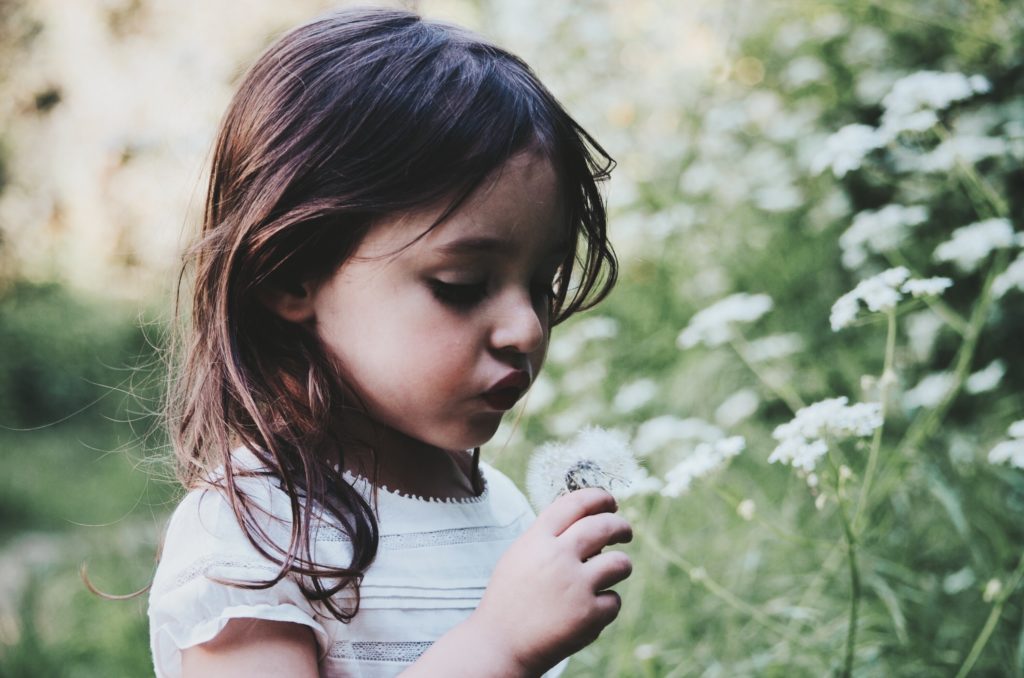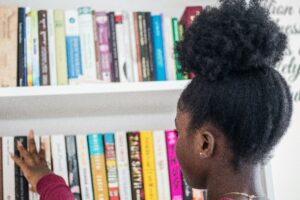As we begin to get a little more used to the world in which we currently find ourselves, I hope that you are finding ways of working, teaching, learning and being that work for you. It will be different for us all. One thing that we can hopefully find solace in at this time is the joy of reading, and its ability to take us to different places, times and lives. The need for escapism is very strong at this point.
This month I’m pleased to be able to bring you books for all ages, including some the whole family will love. While I’ve always been an advocate of adults reading children’s books, this month’s selection is one that adults will certainly enjoy just as much as children.
Ruby Red Shoes lives with her grandmother, Babushka Galina Galushka, in a colourful caravan surrounded by a beautiful garden inhabited by personable chooks. In Ruby Red Shoes: My Wonderful Grandmother, Ruby tells us why it is that she loves her grandmother so much. Mostly it’s because her grandmother is just so good at understanding how she’s feeling. This beautiful feel-good book is filled with Kate Knapp’s distinctive illustrations and rich with quirky details. Made to be read aloud, either from grandchild to grandparent, or grandparent to grandchild, (over the internet or phone will suffice until they can do it in person), this book will leave even the hardest heart feeling warm and fuzzy.
Being in Year Seven is hard enough, but when you combine it with an eye cancer diagnosis, your best friend moving to another city, and becoming the butt of your school’s social media, it goes from difficult to almost impossible. Like anyone else his age, Ross Maloy just wants to fit in – but sometimes life doesn’t play along. Wink is the story of how Ross finds a way not just to survive Year Seven, but to own it. Incorporating Ross’s comic book alter ego, Batpig, and other wonderful graphic illustrations by the author, this novel has much to teach us all about how music, friends and determination can improve just about any situation. Teachers’ notes available.
Stella loves self-help books, so when her family needs help, she feels like she’s ideally suited to take charge. But real life doesn’t always fit into neat boxes like in the books. And when her family has to move into Fairyland, the local caravan park, and her birth mother makes contact, Stella comes to realise that people don’t either. Eliza Henry-Jones’s How to Grow a Family Tree is beautifully written and filled with complex, finely drawn characters. This is not a novel of easy answers, and that is part of what there is to love about it. Along with Stella, we can see that not everyone has the same dreams or aspirations, and that appearances – even good ones – can be deceptive. Teachers’ notes available.
Read of the Month – Phosphorescence
Julia Baird’s Phosphorescence is a book you may have seen reviewed, discussed and advertised as one seemingly written for this moment in history. While I hate to jump on a bandwagon, I can think of no better book to recommend to you right now.
Many of you will be familiar with Baird from her role at The Drum on the ABC, as well as her journalism and books, including Victoria, which was hugely popular a couple of years ago. If you are familiar with her, you will also know that over the past few years she has endured an extraordinary battle against cancer. It was what she learnt from this about finding – and, perhaps more importantly, retaining – contentment, well-being and joy that led her to write Phosphorescence.
We’ve all heard about how doing things like ‘entering nature’, ‘absorbing silence’ and ‘being grateful’ will make us feel better, both mentally and physically. But why do things make us feel good, and how can we realistically make this a part of our lives? Even when we’re not asked to stay inside, most of us don’t have the time or opportunity to regularly wander around a forest. One of the things I most admired about this book was Baird’s ability to make academic experts and evidence both interesting and approachable. This is not easy to do, and yet it made her work so much more convincing than it would otherwise have been.
The other thing that I greatly admired about Phosphorescence was Baird’s willingness to give us a glimpse of her own life, and some of the enormous hardships – and joyous moments – she’s been through. The times she addresses her children – you may have read the letter to her daughter in The Good Weekend Magazine a couple of weeks ago – and the friends and family who have brought her joy were beautiful, without being overly sentimental. I’m not ashamed to say I had tears, of both sadness and laughter, more than once.
While this is an adult book, there is much in here that older children may benefit from, particularly now. Baird’s mix of reflection, research and anecdote is easy to read and has stayed with me for some time. I also appreciated that the book is essentially a series of essays, so if you’re having trouble focusing on one thing for too long at the moment (as I most definitely have been) you can dip in and out of it without it affecting your reading experience. A beautiful book that I cannot recommend highly enough.








